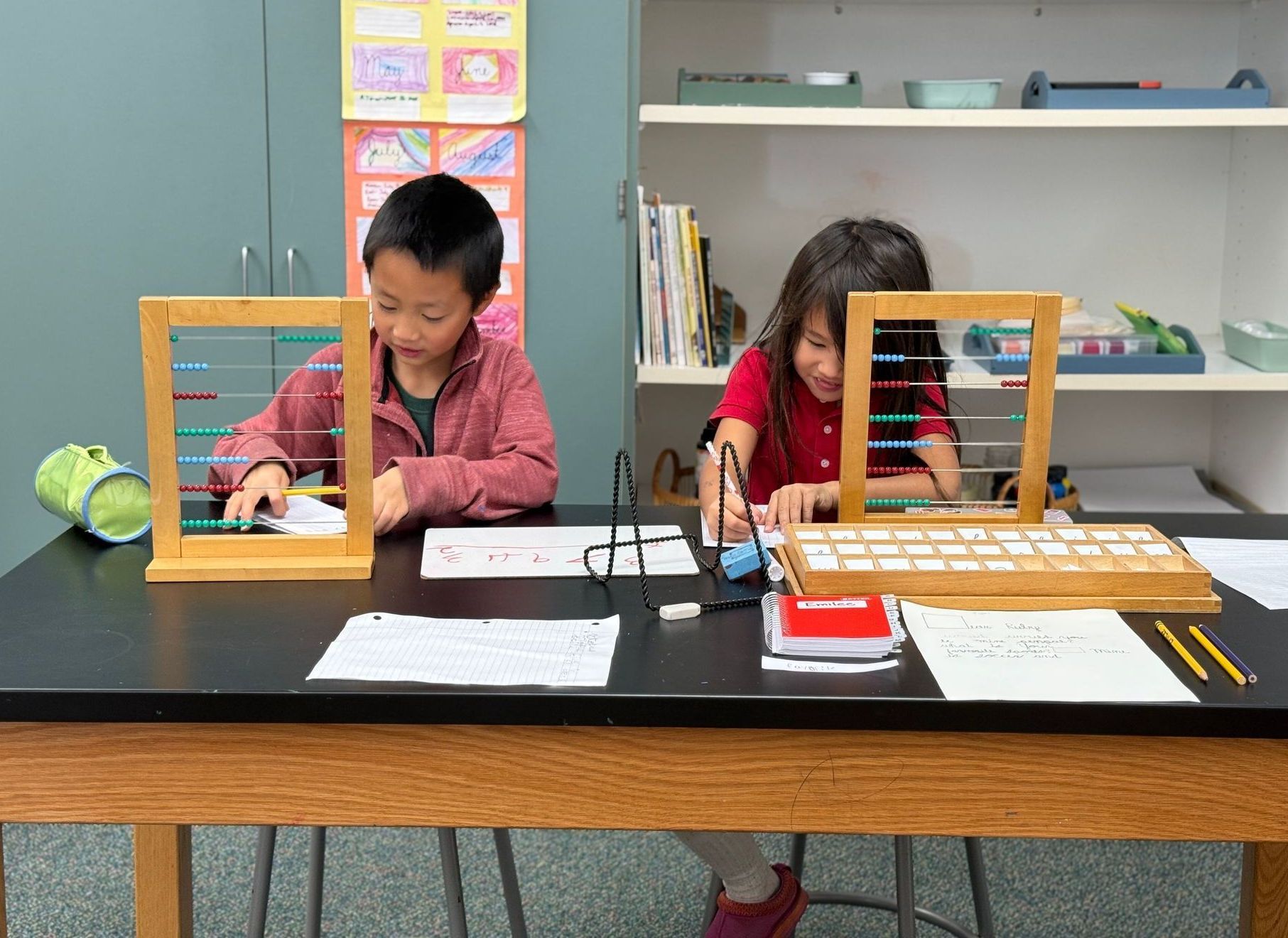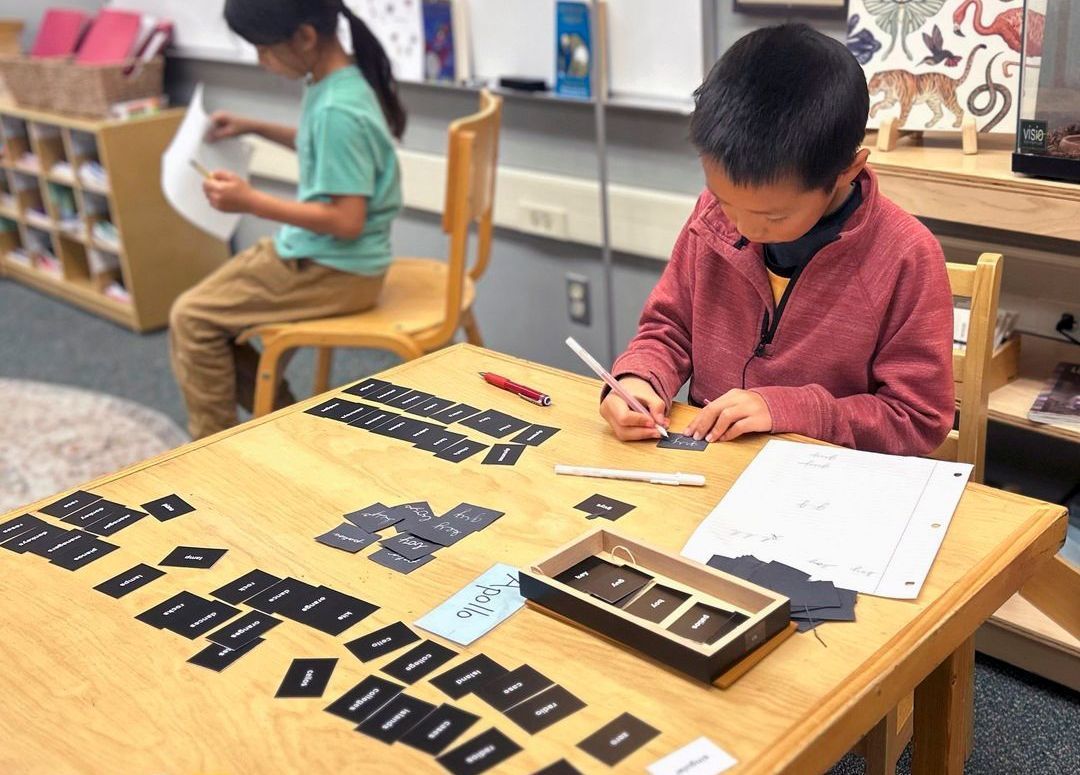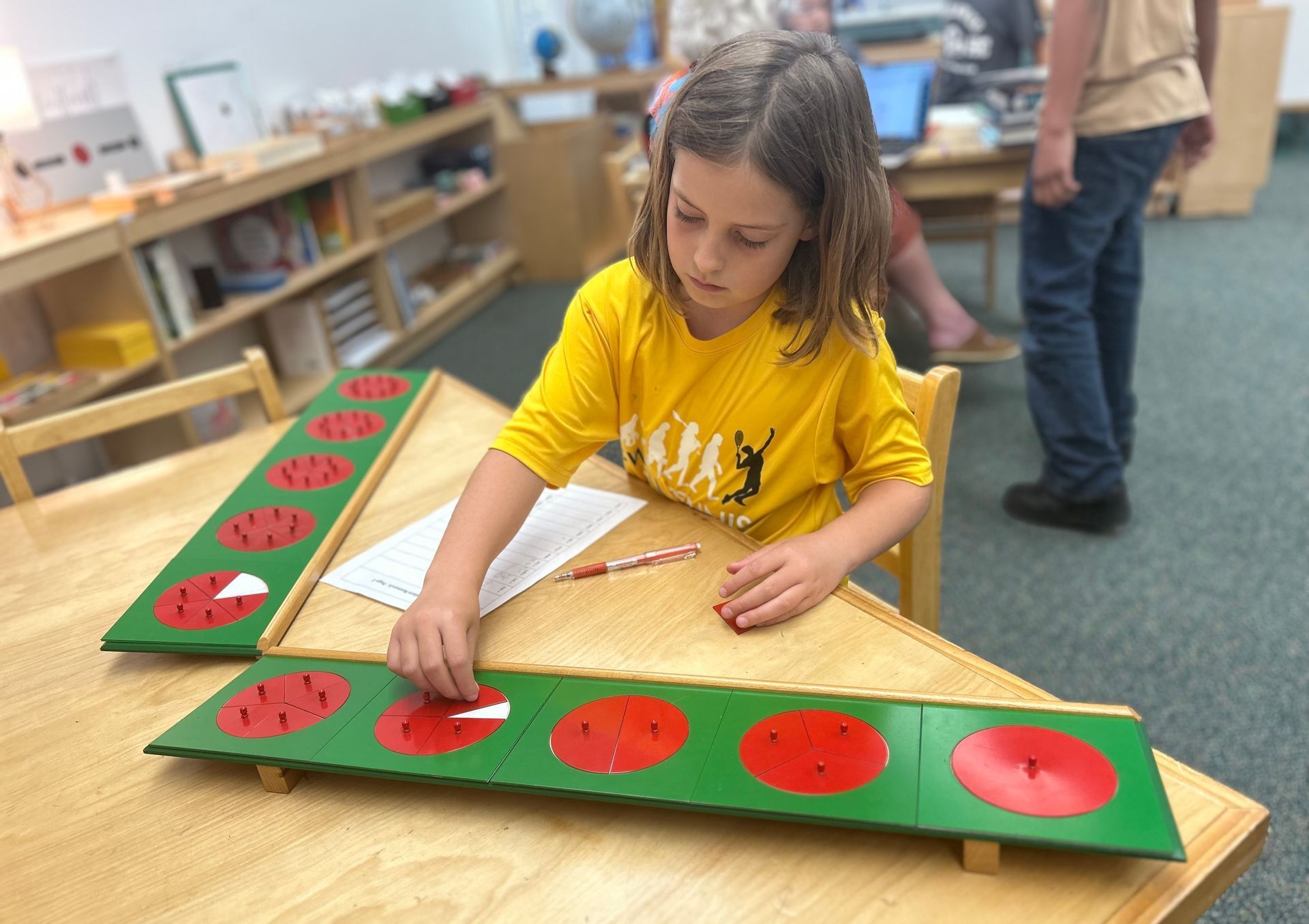Elementary
“The secret of success is found to lie in the right use of imagination in awakening interest,
and the stimulation of seeds of interest already sown..."
-Maria Montessori
Program details
Elementary aged students have enormous potential for the acquisition of academic content. Lessons in the elementary classes are always given in small groups giving each student ample opportunity to express interests, ask questions, and make meaningful contributions, thus developing a sense of educational responsibility. Children in these classes play a part in what they learn which leads to much greater engagement in school and academics.
5 Days a week
Full Day: 8:15am-3:00pm
After School Program: 3:00-5:30pm

A day in the life of an elementary student
No two days are ever the same. Although students come each day to the same classroom with the same classmates and teachers, there is no telling what the day may hold. Students have the responsibility to set the course of their own day and to use their time well. Whether they start their day continuing the botany work they began the day before or exploring various artistic techniques at the Art Museum, the students know that they can make the most of their days in school.
Daily schedule
8:15 - 8:30 Morning drop off.
8:30 - 11:30 Morning work period - lessons are given, follow-up work is done. The three-hour work period allows the elementary child uninterrupted time to create and develop themselves without stress and imposed time periods for each subject.
11:30 - 12:00 Lunch.
12:00 - 12:45 Outside play time.
12:45 - 1:00 Silent reading time.
1:00 - 2:30 Afternoon work period - lessons and continuation of morning work projects.
2:30 - 2:45 Read aloud.
2:45 - 3:00 Pick up time.

Elementary curriculum
When their imagination is fired, the elementary child’s motivation for learning is prodigious. The Montessori elementary curriculum includes the traditional course selections designed to spark the child’s imagination with awe and wonder and inspire them to learn more.
The classroom atmosphere maintains an attitude of respect for each individual student. The Montessori elementary student is not held back by the curriculum of the grade level, but is encouraged to go as far as they are able, making choices and learning at their own pace. The child keeps a daily journal of achievements, and the teacher has periodic conferences with them to help the child work effectively in all areas of the curriculum and ensure that they are working at a level commensurate with their capabilities. Each year a standardized assessment testing is administered to all elementary students in grades three and above. This is just one of the many tools teachers use to assess areas of strengths and challenges.
The Montessori environment accommodates the elementary child’s need to socialize. They are free to work where and with whom they choose and to converse with others, sharing information and ideas. Often students work on a project in small groups and make decisions about each student’s contribution to a cooperative effort. Since the children encounter one another more often than in most traditional schools, they have many opportunities to practice social skills and resolve conflicts. The Montessori elementary student is exceptionally well-prepared to utilize the resources of any educational institution he or she will subsequently attend.
Elementary resources
A 15 minute audio talk from esteemed Montessorian Paula Lillard Preschlack outlining the benefits of a Montessori Elementary Education. Well worth a listen!
Wonderful 5 minute video from Trevor Eissler, author of Montessori Madness, entitled A Parent to Parent Argument for Montessori Education. If you have never seen a 321 FastDraw video online, you are in for a treat!
"The educational experience is tailored to your child's readiness. The teachers are warm and empathetic while also providing challenging material. Most of all we have grown to love the community of families, teachers, and staff at South Coast Montessori."
School Parent
"Both of my children have attended SCM from pre-K to 2nd grade. They both began reading with comprehension at 4-5 years old, performing basic math operations like addition, multiplication, and division in first grade."
School Parent
"We felt comforted sending our children to a place where we knew they were loved and respected and watched in amazement as they experienced explosions in learning and development under the stewardship of the skillful teachers."

